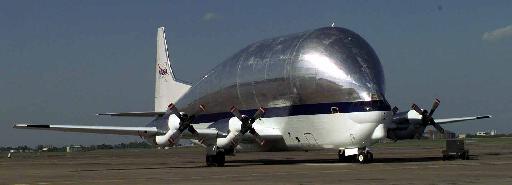
The WB-57F shares this part of the airfield with a other groups. The Super Guppy sits
just outside our window. It's an aircraft used to ferry large cumbersome
payloads.

Another aircraft used by NASA to train astonauts under weightless conditions
is this 707 (actually a KC-135) under the JSC Reduced Gravity
Program. This plane is affectionately referred to as the "vomit comet".
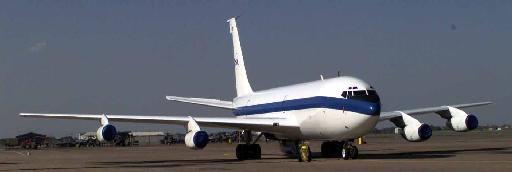
Immediately to the north of us is the Coast Guard, an Army National Guard
Unit, and the 147th
fighter group of the Air National Guard.

An F-16 taxis by building 994.
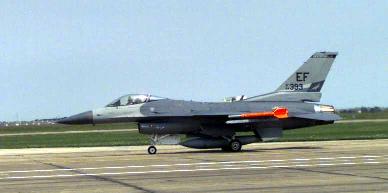
A NASA T-38 landing at Ellington.
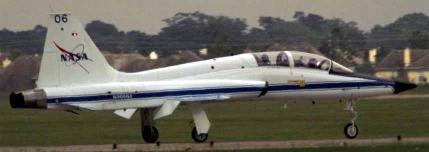
Down the road from us is the main Johnson Space flight center. Shown
here is a Saturn V booster. The Saturn V was used to boost the Apollo
astronauts to the moon.
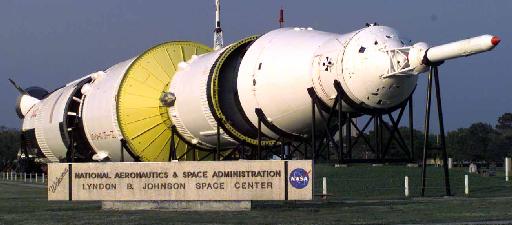
Here's a picture of Tom Kucsera of GSFC standing next to the engine
nozzles of the Saturn V. These nozzles are on the far end of the picture
shown above.
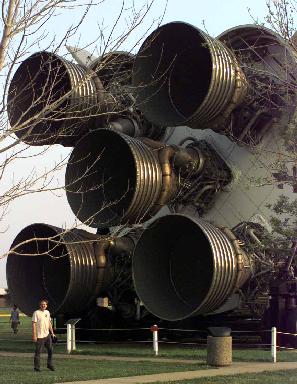
East of Houston and to our north is the San Jacinto battlefield where
Sam Houston and the Texans defeated General Santa Anna on April 21, 1836.
The Texans built a 570 foot monument which has a nice observation deck
up on the top.
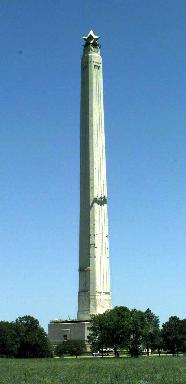
Next to the San Jacinto battlefield is moored the USS Texas. In 1914
this was a state-of-the-art dreadnought.
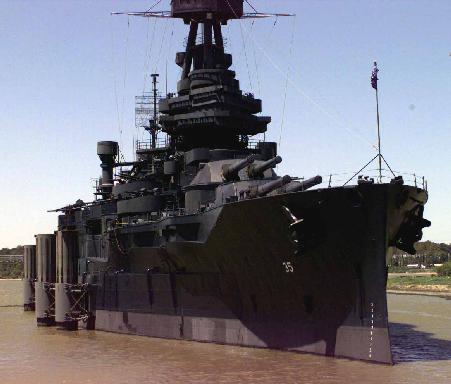
Contrary to popular belief, the Super Guppy was not designed to carry
the USS Texas.
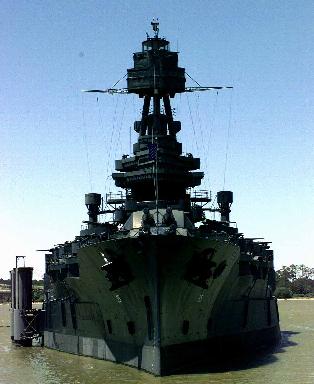
Photos taken by Paul A. Newman of NASA/GSFC.
Go to the available forecast plots? Yes.
Last Updated: 1999-04-11
Author: Dr. Paul A. Newman (NASA/GSFC, Code 916) (newman@notus.gsfc.nasa.gov)
Web Curator: Dr. Leslie R. Lait (Raytheon ITSS) (lrlait@ertel.gsfc.nasa.gov)
Responsible NASA organization/official: Dr. Paul A. Newman, Atmospheric Chemistry and Dynamics Branch